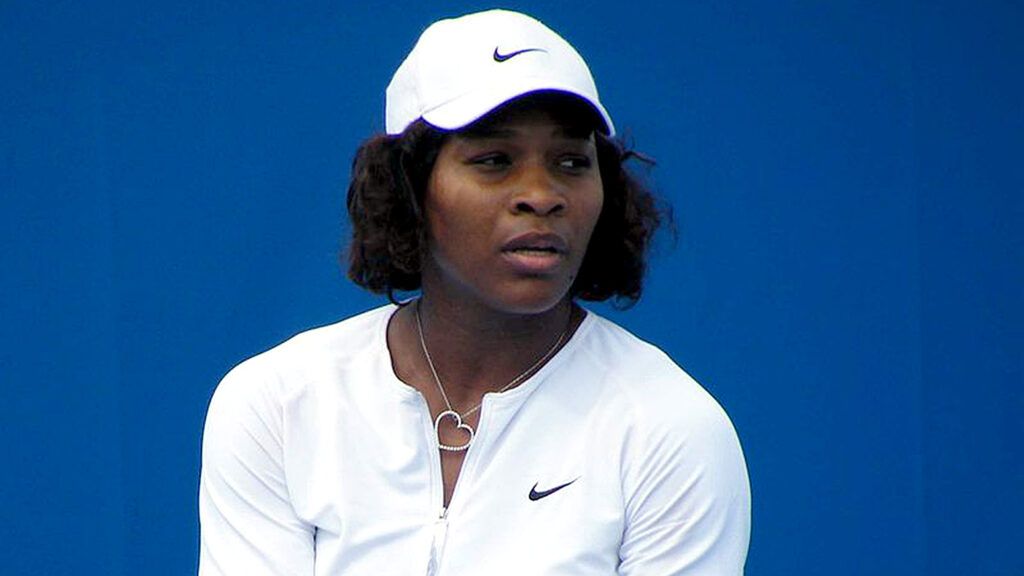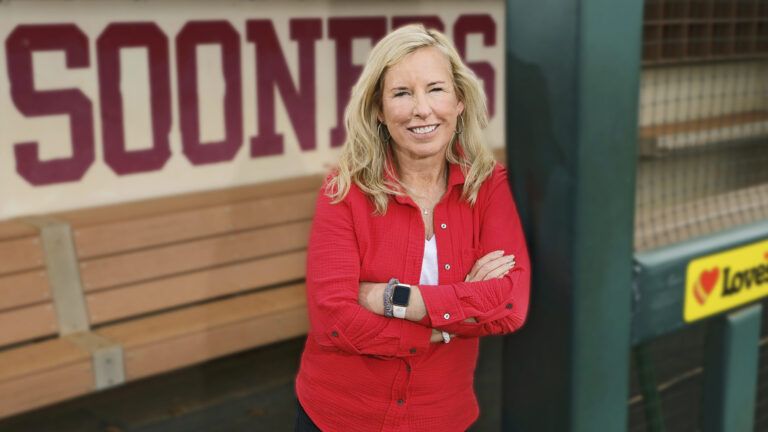I have to laugh when people say, “Wow, Serena, the way you play, you must have been born with a tennis racket in your hand!” Well, not quite. But close.
Back in the late seventies my dad taught himself to play tennis by reading books and watching videos. He needed a practice partner, so he talked my mom into taking it up too. They’d hit the public courts at 5:30 A.M., then practice again after work. Mom stuck with the routine while she was pregnant with me.
Some parents have their babies listen to classical music in the womb. For me, it was the thwock of the tennis ball ricocheting off racket strings, the squeak of sneakers on asphalt. You could say I came into the world with a sense of the rhythm of the game.
Still, I had to wait till I was four years old before my dad let me follow my older sister Venus (who’d already started lessons with him) onto a neighborhood tennis court in Compton, California. I wasn’t much taller than the net, but did I love to play!
I picked up the game at an early age. I picked up on something else too, something that goes far beyond tennis. The idea—the belief, really—that life is about learning.
Not just from school and church, though my parents certainly stressed both. But also from people, from experiences, and, yes, even from losing.
You learn from the get-go when you’re the youngest in a big family, like I am. I had my older sisters—Yetunde, Isha, Lyndrea and Venus—as examples.
Especially Venus, who’s just 15 months older than me. I copied how she dressed, how she wore her hair, how she talked. I wanted to do everything Venus did.
Our mom told me that even though God makes us unique and different, he loves us all exactly the same. It’s how true you are to yourself that matters. It wasn’t until 1999, when I was 18, that the truth of that statement dawned on me.
Venus and I had the same coach (our dad), went to the same tennis school in Florida and practiced together. But our games didn’t turn out the same. Venus is a strategist, rallying from the baseline, waiting for the right moment to rip a passing shot out of her opponent’s reach.
Me, I’m more aggressive. I like to come to the net and volley, take charge and dominate the match, especially with my two-handed backhand. Different styles of play, yet as I found out, both do the job.
In tennis the most prestigious tournaments are the four Grand Slams. I won my first Grand Slam title at the U.S. Open in September, and the next summer Venus won her first, at Wimbledon.
Winning was amazing! But long after the glow of victory faded, the deeper spiritual lesson stayed with me—that like every one of us on this earth, I’m meant to become my own person, make the most of the unique gifts God has blessed me with.
I’m still having fun discovering what they are.
READ MORE: CATHY RIGBY ON OVERCOMING SETBACKS
Losing, that’s another story. I don’t like to lose—at anything. (Just ask my sisters about the singing contests we used to have.) Yet I’ve grown most not from victories, but setbacks. If winning is God’s reward, then losing is how he teaches us.
Take the time I hurt my wrist in 1997, my debut year on the pro tennis tour. (I was 16.) In my second event, I beat two top-10 ranked players and made it to the semifinals before I got beat. Nowhere to go but up, I thought.
Later that month I was skateboarding and bam, total wipeout! I stuck my left arm out to break my fall. Jammed my wrist. Badly.
I’m right-handed, so it wasn’t the worst injury, but I was seriously dejected because I couldn’t hit my two-handed backhand (to say nothing of the trouble I got into with Mom and Dad because I’d skipped school to go boarding).
“Why don’t you make the pain your gain?” Venus said. “Work on your forehand.” My sister’s advice was totally on target. I focused on my forehand like never before, working on every element from my stance to my follow-through.
By the time my left wrist healed, my forehand drive was ferocious. That improved my entire game.
The biggest lift? It came from a devastating loss in the quarterfinals of the 2000 U.S. Open. My opponent: Lindsay Davenport, No. 2 seed. I was the defending champ and I wasn’t about to give up my title without a fight.
We were tied in the first set at 4–4, neither of us able to break the other’s serve. The ninth game, I served. Lindsay pushed me to a break point. I hit a forehand long, past the baseline. Lindsay was up, 5–4.
Dumb. How could you lose that game? I smacked my racket against the court. I knew it was unsportsmanlike, but I was just so frustrated.
READ MORE: ANDREW MCCUTCHEN—THE FAITH TO FOLLOW THROUGH
The negative thoughts kept coming at me. The next thing I knew Lindsay was serving for the set. I lunged, hit a backhand. Right into the net. Lindsay won the set, 6–4.
That time I smacked my racket on the court so hard the frame cracked. I had to grab a new racket out of my bag. Not that it helped. I fell apart, overhitting, complaining about calls, throwing my racket. I lost the second set, 2–6, and the match.
In the locker room, I went over the match point by point. I’d made 27 unforced errors. That’s like giving your opponent 27 points. I lost the match because I lost my composure. I expended so much energy being negative I didn’t have anything left to put into winning.
Worst of all, with my bad behavior I hadn’t shown respect for my opponent, for the game or for the ability God gave me. I’d blown it. Totally.
The only victory would come in learning. No more whining about bad calls. No more dwelling on my mistakes and getting down on myself. It’s hard enough to beat these women on the pro tour. I didn’t need to fight against myself too.
Stay positive. My most powerful weapon on the court is my attitude.
I added another weapon to my game—prayer, which is as sure as my two-handed backhand.
One rule in tennis is that every other game you switch ends of the court with your opponent. Every changeover, I bow my head, close my eyes. And I pray, Help me stay strong out here. Help me stay calm and do my best. Thank you, Lord.
I don’t pray to win. Not that I don’t want to or try to. But I know now a loss can be a gift. A chance to grow. Losing has taught me to be a better winner and a better person, one who is always looking for opportunities to learn.
And in life, just like in tennis, that’s how you go forward.
Did you enjoy this story? Subscribe to Guideposts magazine.






